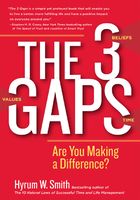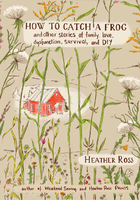'NO MORE OF YESTERDAY'S howling over yonder to-day, Sir; is there?'
'I have heard none.'
'Then you may be sure there is none. When these people howl, they howl to be heard.'
'Most people do, I suppose.'
'Ah! but these people are always howling. Never happy otherwise.'
'Do you mean the Marseilles people?'
'I mean the French people. They're always at it. As to Marseilles, we know what Marseilles is. It sent the most insurrectionary tune into the world that was ever composed. It couldn't exist without allonging and marshonging to something or other-victory or death, or blazes, or something.'
The speaker, with a whimsical good-humour upon him all the time, looked over the parapet-wall with the greatest disparagement of Marseilles; and taking up a determined position by putting his hands in his pockets and rattling his money at it, apostrophised it with a short laugh.
'Allong and marshong, indeed. It would be more creditable to you, I think, to let other people allong and marshong about their lawful business, instead of shutting 'em up in quarantine!'
'Tiresome enough,' said the other. 'But we shall be out to-day.'
'Out to-day!' repeated the first. 'It's almost an aggravation of the enormity, that we shall be out to-day. Out! What have we ever been in for?'
'For no very strong reason, I must say. But as we come from the East, and as the East is the country of the plague-'
'The plague!' repeated the other. 'That's my grievance. I have had the plague continually, ever since I have been here. I am like a sane man shut up in a madhouse; I can't stand the suspicion of the thing. I came here as well as ever I was in my life; but to suspect me of the plague is to give me the plague. And I have had it-and I have got it.'
'You bear it very well, Mr Meagles,' said the second speaker, smiling.
'No. If you knew the real state of the case, that's the last observation you would think of making. I have been waking up night after night, and saying, now I have got it, now it has developed itself, now I am in for it, now these fellows are making out their case for their precautions. Why, I'd as soon have a spit put through me, and be stuck upon a card in a collection of beetles, as lead the life I have been leading here.'
'Well, Mr Meagles, say no more about it now it's over,' urged a cheerful feminine voice.
'Over!' repeated Mr Meagles, who appeared (though without any ill-nature) to be in that peculiar state of mind in which the last word spoken by anybody else is a new injury. 'Over! and why should I say no more about it because it's over?'
It was Mrs Meagles who had spoken to Mr Meagles; and Mrs Meagles was, like Mr Meagles, comely and healthy, with a pleasant English face which had been looking at homely things for five-and-fifty years or more, and shone with a bright reflection of them.
'There! Never mind, Father, never mind!' said Mrs Meagles. 'For goodness sake content yourself with Pet.'
'With Pet?' repeated Mr Meagles in his injured vein. Pet, however, being close behind him, touched him on the shoulder, and Mr Meagles immediately forgave Marseilles from the bottom of his heart.
Pet was about twenty. A fair girl with rich brown hair hanging free in natural ringlets. A lovely girl, with a frank face, and wonderful eyes; so large, so soft, so bright, set to such perfection in her kind good head. She was round and fresh and dimpled and spoilt, and there was in Pet an air of timidity and dependence which was the best weakness in the world, and gave her the only crowning charm a girl so pretty and pleasant could have been without.
'Now, I ask you,' said Mr Meagles in the blandest confidence, falling back a step himself, and handing his daughter a step forward to illustrate his question: 'I ask you simply, as between man and man, you know, DID you ever hear of such damned nonsense as putting Pet in quarantine?'
'It has had the result of making even quarantine enjoyable.'
'Come!' said Mr Meagles, 'that's something to be sure. I am obliged to you for that remark. Now, Pet, my darling, you had better go along with Mother and get ready for the boat. The officer of health, and a variety of humbugs in cocked hats, are coming off to let us out of this at last: and all we jail-birds are to breakfast together in something approaching to a Christian style again, before we take wing for our different destinations. Tattycoram, stick you close to your young mistress.'
He spoke to a handsome girl with lustrous dark hair and eyes, and very neatly dressed, who replied with a half-curtsy as she passed off in the train of Mrs Meagles and Pet. They crossed the bare scorched terrace all three together, and disappeared through a staring white archway. Mr Meagles's companion, a grave dark man of forty, still stood looking towards this archway after they were gone; until Mr Meagles tapped him on the arm.
'I beg your pardon,' said he, starting.
'Not at all,' said Mr Meagles.
They took one silent turn backward and forward in the shade of the wall, getting, at the height on which the quarantine barracks are placed, what cool refreshment of sea breeze there was at seven in the morning. Mr Meagles's companion resumed the conversation.
'May I ask you,' he said, 'what is the name of-'
'Tattycoram?' Mr Meagles struck in. 'I have not the least idea.'
'I thought,' said the other, 'that-'
'Tattycoram?' suggested Mr Meagles again.
'Thank you-that Tattycoram was a name; and I have several times wondered at the oddity of it.'
'Why, the fact is,' said Mr Meagles, 'Mrs Meagles and myself are, you see, practical people.'
'That you have frequently mentioned in the course of the agreeable and interesting conversations we have had together, walking up and down on these stones,' said the other, with a half smile breaking through the gravity of his dark face.
'Practical people. So one day, five or six years ago now, when we took Pet to church at the Foundling-you have heard of the Foundling Hospital in London? Similar to the Institution for the Found Children in Paris?'
'I have seen it.'
'Well! One day when we took Pet to church there to hear the music-because, as practical people, it is the business of our lives to show her everything that we think can please her-Mother (my usual name for Mrs Meagles) began to cry so, that it was necessary to take her out. "What's the matter, Mother?" said I, when we had brought her a little round: "you are frightening Pet, my dear." "Yes, I know that, Father," says Mother, "but I think it's through my loving her so much, that it ever came into my head." "That ever what came into your head, Mother?" "O dear, dear!" cried Mother, breaking out again, "when I saw all those children ranged tier above tier, and appealing from the father none of them has ever known on earth, to the great Father of us all in Heaven, I thought, does any wretched mother ever come here, and look among those young faces, wondering which is the poor child she brought into this forlorn world, never through all its life to know her love, her kiss, her face, her voice, even her name!" Now that was practical in Mother, and I told her so. I said, "Mother, that's what I call practical in you, my dear."'
The other, not unmoved, assented.
'So I said next day: Now, Mother, I have a proposition to make that I think you'll approve of. Let us take one of those same little children to be a little maid to Pet. We are practical people. So if we should find her temper a little defective, or any of her ways a little wide of ours, we shall know what we have to take into account. We shall know what an immense deduction must be made from all the influences and experiences that have formed us-no parents, no child-brother or sister, no individuality of home, no Glass Slipper, or Fairy Godmother. And that's the way we came by Tattycoram.'
'And the name itself-'
'By George!' said Mr Meagles, 'I was forgetting the name itself. Why, she was called in the Institution, Harriet Beadle-an arbitrary name, of course. Now, Harriet we changed into Hatty, and then into Tatty, because, as practical people, we thought even a playful name might be a new thing to her, and might have a softening and affectionate kind of effect, don't you see? As to Beadle, that I needn't say was wholly out of the question. If there is anything that is not to be tolerated on any terms, anything that is a type of Jack-in-office insolence and absurdity, anything that represents in coats, waistcoats, and big sticks our English holding on by nonsense after every one has found it out, it is a beadle. You haven't seen a beadle lately?'
'As an Englishman who has been more than twenty years in China, no.'
'Then,' said Mr Meagles, laying his forefinger on his companion's breast with great animation, 'don't you see a beadle, now, if you can help it. Whenever I see a beadle in full fig, coming down a street on a Sunday at the head of a charity school, I am obliged to turn and run away, or I should hit him. The name of Beadle being out of the question, and the originator of the Institution for these poor foundlings having been a blessed creature of the name of Coram, we gave that name to Pet's little maid. At one time she was Tatty, and at one time she was Coram, until we got into a way of mixing the two names together, and now she is always Tattycoram.'
'Your daughter,' said the other, when they had taken another silent turn to and fro, and, after standing for a moment at the wall glancing down at the sea, had resumed their walk, 'is your only child, I know, Mr Meagles. May I ask you-in no impertinent curiosity, but because I have had so much pleasure in your society, may never in this labyrinth of a world exchange a quiet word with you again, and wish to preserve an accurate remembrance of you and yours-may I ask you, if I have not gathered from your good wife that you have had other children?'
'No. No,' said Mr Meagles. 'Not exactly other children. One other child.'
'I am afraid I have inadvertently touched upon a tender theme.'
'Never mind,' said Mr Meagles. 'If I am grave about it, I am not at all sorrowful. It quiets me for a moment, but does not make me unhappy. Pet had a twin sister who died when we could just see her eyes-exactly like Pet's-above the table, as she stood on tiptoe holding by it.'
'Ah! indeed, indeed!'
'Yes, and being practical people, a result has gradually sprung up in the minds of Mrs Meagles and myself which perhaps you may-or perhaps you may not-understand. Pet and her baby sister were so exactly alike, and so completely one, that in our thoughts we have never been able to separate them since. It would be of no use to tell us that our dead child was a mere infant. We have changed that child according to the changes in the child spared to us and always with us. As Pet has grown, that child has grown; as Pet has become more sensible and womanly, her sister has become more sensible and womanly by just the same degrees. It would be as hard to convince me that if I was to pass into the other world to-morrow, I should not, through the mercy of God, be received there by a daughter, just like Pet, as to persuade me that Pet herself is not a reality at my side.'
'I understand you,' said the other, gently.
'As to her,' pursued her father, 'the sudden loss of her little picture and playfellow, and her early association with that mystery in which we all have our equal share, but which is not often so forcibly presented to a child, has necessarily had some influence on her character. Then, her mother and I were not young when we married, and Pet has always had a sort of grown-up life with us, though we have tried to adapt ourselves to her. We have been advised more than once when she has been a little ailing, to change climate and air for her as often as we could-especially at about this time of her life-and to keep her amused. So, as I have no need to stick at a bank-desk now (though I have been poor enough in my time I assure you, or I should have married Mrs Meagles long before), we go trotting about the world. This is how you found us staring at the Nile, and the Pyramids, and the Sphinxes, and the Desert, and all the rest of it; and this is how Tattycoram will be a greater traveller in course of time than Captain Cook.'
'I thank you,' said the other, 'very heartily for your confidence.'
'Don't mention it,' returned Mr Meagles; 'I am sure you are quite welcome. And now, Mr Clennam, perhaps I may ask you whether you have yet come to a decision where to go next?'
'Indeed, no. I am such a waif and stray everywhere, that I am liable to be drifted where any current may set.'
'It's extraordinary to me-if you'll excuse my freedom in saying so-that you don't go straight to London,' said Mr Meagles in the tone of a confidential adviser.
'Perhaps I shall.'
'Ay! But I mean with a will.'
'I have no will. That is to say,'-he coloured a little,-'next to none that I can put in action now. Trained by main force; broken, not bent; heavily ironed with an object on which I was never consulted and which was never mine; shipped away to the other end of the world before I was of age, and exiled there until my father's death there, a year ago; always grinding in a mill I always hated; what is to be expected from me in middle life? Will, purpose, hope? All those lights were extinguished before I could sound the words.'
'Light 'em up again!' said Mr Meagles.
'Ah! Easily said. I am the son, Mr Meagles, of a hard father and mother. I am the only child of parents who weighed, measured, and priced everything; for whom what could not be weighed, measured, and priced, had no existence. Strict people as the phrase is, professors of a stern religion, their very religion was a gloomy sacrifice of tastes and sympathies that were never their own, offered up as a part of a bargain for the security of their possessions. Austere faces, inexorable discipline, penance in this world and terror in the next-nothing graceful or gentle anywhere, and the void in my cowed heart everywhere-this was my childhood, if I may so misuse the word as to apply it to such a beginning of life.'
'Really though?' said Mr Meagles, made very uncomfortable by the picture offered to his imagination. 'That was a tough commencement. But come! You must now study, and profit by, all that lies beyond it, like a practical man.'
'If the people who are usually called practical, were practical in your direction-'
'Why, so they are!' said Mr Meagles.
'Are they indeed?'
'Well, I suppose so,' returned Mr Meagles, thinking about it. 'Eh?
One can but be practical, and Mrs Meagles and myself are nothing else.'
'My unknown course is easier and more helpful than I had expected to find it, then,' said Clennam, shaking his head with his grave smile. 'Enough of me. Here is the boat.'
The boat was filled with the cocked hats to which Mr Meagles entertained a national objection; and the wearers of those cocked hats landed and came up the steps, and all the impounded travellers congregated together. There was then a mighty production of papers on the part of the cocked hats, and a calling over of names, and great work of signing, sealing, stamping, inking, and sanding, with exceedingly blurred, gritty, and undecipherable results. Finally, everything was done according to rule, and the travellers were at liberty to depart whithersoever they would.
They made little account of stare and glare, in the new pleasure of recovering their freedom, but flitted across the harbour in gay boats, and reassembled at a great hotel, whence the sun was excluded by closed lattices, and where bare paved floors, lofty ceilings, and resounding corridors tempered the intense heat. There, a great table in a great room was soon profusely covered with a superb repast; and the quarantine quarters became bare indeed, remembered among dainty dishes, southern fruits, cooled wines, flowers from Genoa, snow from the mountain tops, and all the colours of the rainbow flashing in the mirrors.
'But I bear those monotonous walls no ill-will now,' said Mr Meagles. 'One always begins to forgive a place as soon as it's left behind; I dare say a prisoner begins to relent towards his prison, after he is let out.'
They were about thirty in company, and all talking; but necessarily in groups. Father and Mother Meagles sat with their daughter between them, the last three on one side of the table: on the opposite side sat Mr Clennam; a tall French gentleman with raven hair and beard, of a swart and terrible, not to say genteelly diabolical aspect, but who had shown himself the mildest of men; and a handsome young Englishwoman, travelling quite alone, who had a proud observant face, and had either withdrawn herself from the rest or been avoided by the rest-nobody, herself excepted, perhaps, could have quite decided which. The rest of the party were of the usual materials: travellers on business, and travellers for pleasure; officers from India on leave; merchants in the Greek and Turkey trades; a clerical English husband in a meek strait-waistcoat, on a wedding trip with his young wife; a majestic English mama and papa, of the patrician order, with a family of three growing-up daughters, who were keeping a journal for the confusion of their fellow-creatures; and a deaf old English mother, tough in travel, with a very decidedly grown-up daughter indeed, which daughter went sketching about the universe in the expectation of ultimately toning herself off into the married state.
The reserved Englishwoman took up Mr Meagles in his last remark. 'Do you mean that a prisoner forgives his prison?' said she, slowly and with emphasis.
'That was my speculation, Miss Wade. I don't pretend to know positively how a prisoner might feel. I never was one before.'
'Mademoiselle doubts,' said the French gentleman in his own language, 'it's being so easy to forgive?'
'I do.'
Pet had to translate this passage to Mr Meagles, who never by any accident acquired any knowledge whatever of the language of any country into which he travelled. 'Oh!' said he. 'Dear me! But that's a pity, isn't it?'
'That I am not credulous?' said Miss Wade.
'Not exactly that. Put it another way. That you can't believe it easy to forgive.'
'My experience,' she quietly returned, 'has been correcting my belief in many respects, for some years. It is our natural progress, I have heard.'
'Well, well! But it's not natural to bear malice, I hope?' said Mr Meagles cheerily.
'If I had been shut up in any place to pine and suffer, I should always hate that place and wish to burn it down, or raze it to the ground. I know no more.'
'Strong, sir?' said Mr Meagles to the Frenchman; it being another of his habits to address individuals of all nations in idiomatic English, with a perfect conviction that they were bound to understand it somehow. 'Rather forcible in our fair friend, you'll agree with me, I think?'
The French gentleman courteously replied, 'Plait-il?' To which Mr Meagles returned, with much satisfaction, 'You are right. My opinion.'
The breakfast beginning by-and-by to languish, Mr Meagles made the company a speech. It was short enough and sensible enough, considering that it was a speech at all, and hearty. It merely went to the effect that as they had all been thrown together by chance, and had all preserved a good understanding together, and were now about to disperse, and were not likely ever to find themselves all together again, what could they do better than bid farewell to one another, and give one another good-speed in a simultaneous glass of cool champagne all round the table? It was done, and with a general shaking of hands the assembly broke up for ever.
The solitary young lady all this time had said no more. She rose with the rest, and silently withdrew to a remote corner of the great room, where she sat herself on a couch in a window, seeming to watch the reflection of the water as it made a silver quivering on the bars of the lattice. She sat, turned away from the whole length of the apartment, as if she were lonely of her own haughty choice. And yet it would have been as difficult as ever to say, positively, whether she avoided the rest, or was avoided.
The shadow in which she sat, falling like a gloomy veil across her forehead, accorded very well with the character of her beauty. One could hardly see the face, so still and scornful, set off by the arched dark eyebrows, and the folds of dark hair, without wondering what its expression would be if a change came over it. That it could soften or relent, appeared next to impossible. That it could deepen into anger or any extreme of defiance, and that it must change in that direction when it changed at all, would have been its peculiar impression upon most observers. It was dressed and trimmed into no ceremony of expression. Although not an open face, there was no pretence in it. 'I am self-contained and self-reliant; your opinion is nothing to me; I have no interest in you, care nothing for you, and see and hear you with indifference'-this it said plainly. It said so in the proud eyes, in the lifted nostril, in the handsome but compressed and even cruel mouth. Cover either two of those channels of expression, and the third would have said so still. Mask them all, and the mere turn of the head would have shown an unsubduable nature.
Pet had moved up to her (she had been the subject of remark among her family and Mr Clennam, who were now the only other occupants of the room), and was standing at her side.
'Are you'-she turned her eyes, and Pet faltered-'expecting any one to meet you here, Miss Wade?'
'I? No.'
'Father is sending to the Poste Restante. Shall he have the pleasure of directing the messenger to ask if there are any letters for you?'
'I thank him, but I know there can be none.'
'We are afraid,' said Pet, sitting down beside her, shyly and half tenderly, 'that you will feel quite deserted when we are all gone.'
'Indeed!'
'Not,' said Pet, apologetically and embarrassed by her eyes, 'not, of course, that we are any company to you, or that we have been able to be so, or that we thought you wished it.'
'I have not intended to make it understood that I did wish it.'
'No. Of course. But-in short,' said Pet, timidly touching her hand as it lay impassive on the sofa between them, 'will you not allow Father to tender you any slight assistance or service? He will be very glad.'
'Very glad,' said Mr Meagles, coming forward with his wife and Clennam. 'Anything short of speaking the language, I shall be delighted to undertake, I am sure.'
'I am obliged to you,' she returned, 'but my arrangements are made, and I prefer to go my own way in my own manner.'
'Do you?' said Mr Meagles to himself, as he surveyed her with a puzzled look. 'Well! There's character in that, too.'
'I am not much used to the society of young ladies, and I am afraid I may not show my appreciation of it as others might. A pleasant journey to you. Good-bye!'
She would not have put out her hand, it seemed, but that Mr Meagles put out his so straight before her that she could not pass it. She put hers in it, and it lay there just as it had lain upon the couch.
'Good-bye!' said Mr Meagles. 'This is the last good-bye upon the list, for Mother and I have just said it to Mr Clennam here, and he only waits to say it to Pet. Good-bye! We may never meet again.'
'In our course through life we shall meet the people who are coming to meet us, from many strange places and by many strange roads,' was the composed reply; 'and what it is set to us to do to them, and what it is set to them to do to us, will all be done.' There was something in the manner of these words that jarred upon Pet's ear. It implied that what was to be done was necessarily evil, and it caused her to say in a whisper, 'O Father!' and to shrink childishly, in her spoilt way, a little closer to him. This was not lost on the speaker.
'Your pretty daughter,' she said, 'starts to think of such things. Yet,' looking full upon her, 'you may be sure that there are men and women already on their road, who have their business to do with you, and who will do it. Of a certainty they will do it. They may be coming hundreds, thousands, of miles over the sea there; they may be close at hand now; they may be coming, for anything you know or anything you can do to prevent it, from the vilest sweepings of this very town.'
With the coldest of farewells, and with a certain worn expression on her beauty that gave it, though scarcely yet in its prime, a wasted look, she left the room.
Now, there were many stairs and passages that she had to traverse in passing from that part of the spacious house to the chamber she had secured for her own occupation. When she had almost completed the journey, and was passing along the gallery in which her room was, she heard an angry sound of muttering and sobbing. A door stood open, and within she saw the attendant upon the girl she had just left; the maid with the curious name.
She stood still, to look at this maid. A sullen, passionate girl! Her rich black hair was all about her face, her face was flushed and hot, and as she sobbed and raged, she plucked at her lips with an unsparing hand.
'Selfish brutes!' said the girl, sobbing and heaving between whiles. 'Not caring what becomes of me! Leaving me here hungry and thirsty and tired, to starve, for anything they care! Beasts! Devils! Wretches!'
'My poor girl, what is the matter?'
She looked up suddenly, with reddened eyes, and with her hands suspended, in the act of pinching her neck, freshly disfigured with great scarlet blots. 'It's nothing to you what's the matter. It don't signify to any one.'
'O yes it does; I am sorry to see you so.'
'You are not sorry,' said the girl. 'You are glad. You know you are glad. I never was like this but twice over in the quarantine yonder; and both times you found me. I am afraid of you.'
'Afraid of me?'
'Yes. You seem to come like my own anger, my own malice, my own-whatever it is-I don't know what it is. But I am ill-used, I am ill-used, I am ill-used!' Here the sobs and the tears, and the tearing hand, which had all been suspended together since the first surprise, went on together anew.
The visitor stood looking at her with a strange attentive smile. It was wonderful to see the fury of the contest in the girl, and the bodily struggle she made as if she were rent by the Demons of old.
'I am younger than she is by two or three years, and yet it's me that looks after her, as if I was old, and it's she that's always petted and called Baby! I detest the name. I hate her! They make a fool of her, they spoil her. She thinks of nothing but herself, she thinks no more of me than if I was a stock and a stone!' So the girl went on.
'You must have patience.'
'I won't have patience!'
'If they take much care of themselves, and little or none of you, you must not mind it.'
I will mind it.'
'Hush! Be more prudent. You forget your dependent position.'
'I don't care for that. I'll run away. I'll do some mischief. I won't bear it; I can't bear it; I shall die if I try to bear it!'
The observer stood with her hand upon her own bosom, looking at the girl, as one afflicted with a diseased part might curiously watch the dissection and exposition of an analogous case.
The girl raged and battled with all the force of her youth and fullness of life, until by little and little her passionate exclamations trailed off into broken murmurs as if she were in pain. By corresponding degrees she sank into a chair, then upon her knees, then upon the ground beside the bed, drawing the coverlet with her, half to hide her shamed head and wet hair in it, and half, as it seemed, to embrace it, rather than have nothing to take to her repentant breast.
'Go away from me, go away from me! When my temper comes upon me, I am mad. I know I might keep it off if I only tried hard enough, and sometimes I do try hard enough, and at other times I don't and won't. What have I said! I knew when I said it, it was all lies. They think I am being taken care of somewhere, and have all I want.
They are nothing but good to me. I love them dearly; no people could ever be kinder to a thankless creature than they always are to me. Do, do go away, for I am afraid of you. I am afraid of myself when I feel my temper coming, and I am as much afraid of you. Go away from me, and let me pray and cry myself better!' The day passed on; and again the wide stare stared itself out; and the hot night was on Marseilles; and through it the caravan of the morning, all dispersed, went their appointed ways. And thus ever by day and night, under the sun and under the stars, climbing the dusty hills and toiling along the weary plains, journeying by land and journeying by sea, coming and going so strangely, to meet and to act and react on one another, move all we restless travellers through the pilgrimage of life.















